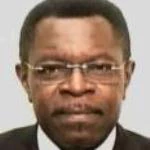
It was my first week in Algeria, and I found myself racing through the capital in a motorcade. This was far from my usual form of transportation, but rather the result of a fortunate coincidence. My preparations for taking up office as Resident Representative of the World Bank for Algeria happen to overlap with an official visit by our Vice President for Middle East and North Africa, Inger Andersen.
During two very long days, I was afforded an unprecedented opportunity of meeting a broad range of government officials. We moved quickly from meeting to meeting as the packed schedule included encounters with the Prime Minister, the Finance Minister and a host of other ministers in charge of strategic sectors.
Apart from getting to know my future interlocutors, it was also a chance to hear first-hand about the major social and economic challenges that Algeria is currently facing. In each meeting I heard about programs either underway or in development to meet these challenges, and as I listened both mine and the World Bank’s role in supporting these efforts became ever clearer.
Algeria is blessed with an extensive natural resource endowment, but despite careful management of its oil and gas deposits they have not achieved the kind of growth that would generate the number and diversity of jobs needed. There was universal recognition that the economy had to be diversified and the business climate improved to boost the development of the non-oil private sector.
In tandem, there was a determination to better support the most vulnerable populations, with more economic opportunities and the skills and resources to seize them. These three major challenges were at the heart of all our discussions, and they had a common denominator, familiar to the rest of the region, of youth employment.
It was a tiring but very enlightening couple of days. I have a deeper appreciation of the critical historical moment in Algeria, and the steps being taken to move forward. Equally critical, my mission has also taken shape, framed by the challenges the country faces, with youth unemployment providing an overarching perspective. With its natural resources, Algeria has no need for World Bank lending operations. Algeria is, however, very interested in learning from other countries about their experience – good and bad – as Algeria strategizes the best way to tackle the challenges. This is where the Bank can come in. The global knowledge and expertise that the Bank can offer is extremely valuable in supporting goals such as economic diversification and private sector development. At the end of the day, of course, Algerians will determine the road they will take, but the Bank’s input can provide some sense of what has worked (and not worked) elsewhere.
Algeria has persevered and continued to grow in a very tough international and regional context. Its partners have a role to play in preserving and strengthening its economic and social stability. For the World Bank, this will mean advice on everything from regulatory reform to the design and implementation of policies.
As Resident Representative, I see myself as a facilitator, linking up specific needs in Algeria with the relevant Bank sector or network. The aim will be for our seasoned experts to help light the authorities’ way toward the most effective allocation of resources for promoting inclusive growth and shared prosperity.


Join the Conversation